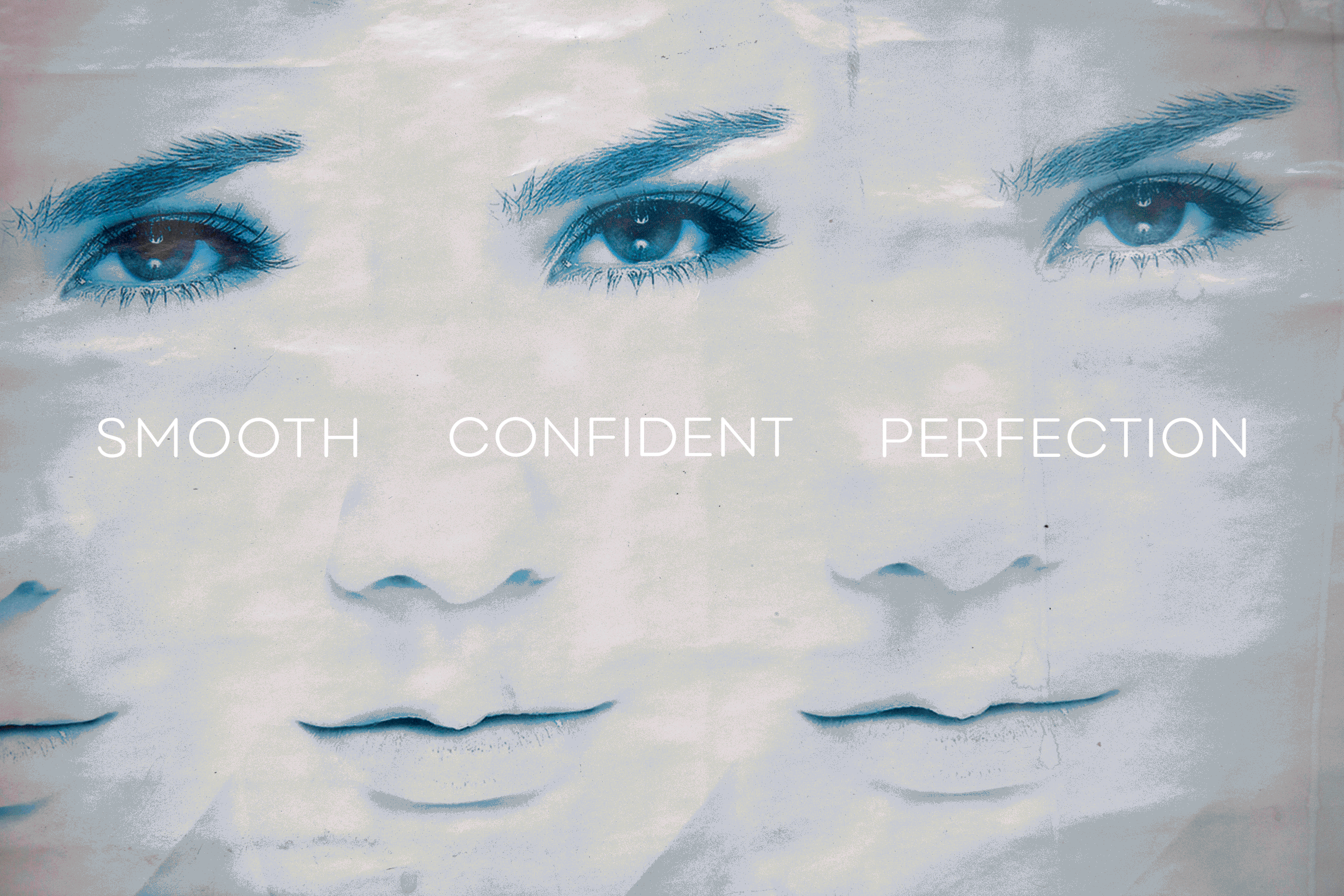Allison Kaufman
March 8th, 2024 - April 18th, 2024
Installation detail, Aspirational Vestiges, 2024
Allison Kaufman: Smooth Confident Perfection explores the performance, hope, and vulnerability experienced by both sellers and consumers in a capitalist society. Recontextualizing and examining overlooked, worn, and gendered marketing materials, her photographs, installation, and video reveal the earnest efforts of salespeople that have faded over time, their degradation communicating the absurdity, impossibility, and slow failure of our societal aspirations. Kaufman considers the fantasy of both the seller and the buyer and where these desires collide: the storefronts of city sidewalks.
Installation detail, Aspirational Vestiges, 2024
Aspirational Vestiges, the centerpiece of the show, is an installation comprised of lightboxes and signage, aimed at women, from small threading and waxing storefronts ubiquitous to New York City. Kaufman photographs the signage in various states of degradation and refabricates the lightboxes as sculptural objects. The work explicitly toys with the seductive nature of commercial signage as documents of perpetual optimism that remain long after the grand openings. The word “vestige” is twofold: either a trace of something that has been lost or an organ that has evolved to be inactive. In taking worn fragmentations of the female body out of context, Kaufman highlights this duality present in the work. Her collection also underscores the erasures and omissions in these materials at large: the full female body, aging, diversity, and the labor behind these storefronts.
Installation detail, 3rd Avenue Car Dealerships, Video and Photographs, 2018-2024, Smooth Confident Perfection, 2024
3rd Avenue Car Dealerships, Single-Channel Looped Video with Sound
Across the gallery, the video 3rd Avenue Car Dealerships serves as a counterpoint to the flickering collection of light boxes, showing waving flags against blue skies. Some clips are optimistic and bright with promise, while others show the same flags weathered with time. Kaufman pairs the images with promotional audio clips by car salesmen found on YouTube. The blended speeches are both earnest and insincere, echoing and informing the gender performance at play in other works in the gallery. Like Aspirational Vestiges, the actual object or service being sold is absent from 3rd Avenue Car Dealerships. Both works focus exclusively on the ornamentation of commercialism, highlighting the desire and potential disappointment inherent in both selling and buying.
Installation detail, 3rd Avenue Car Dealerships, 2018-present

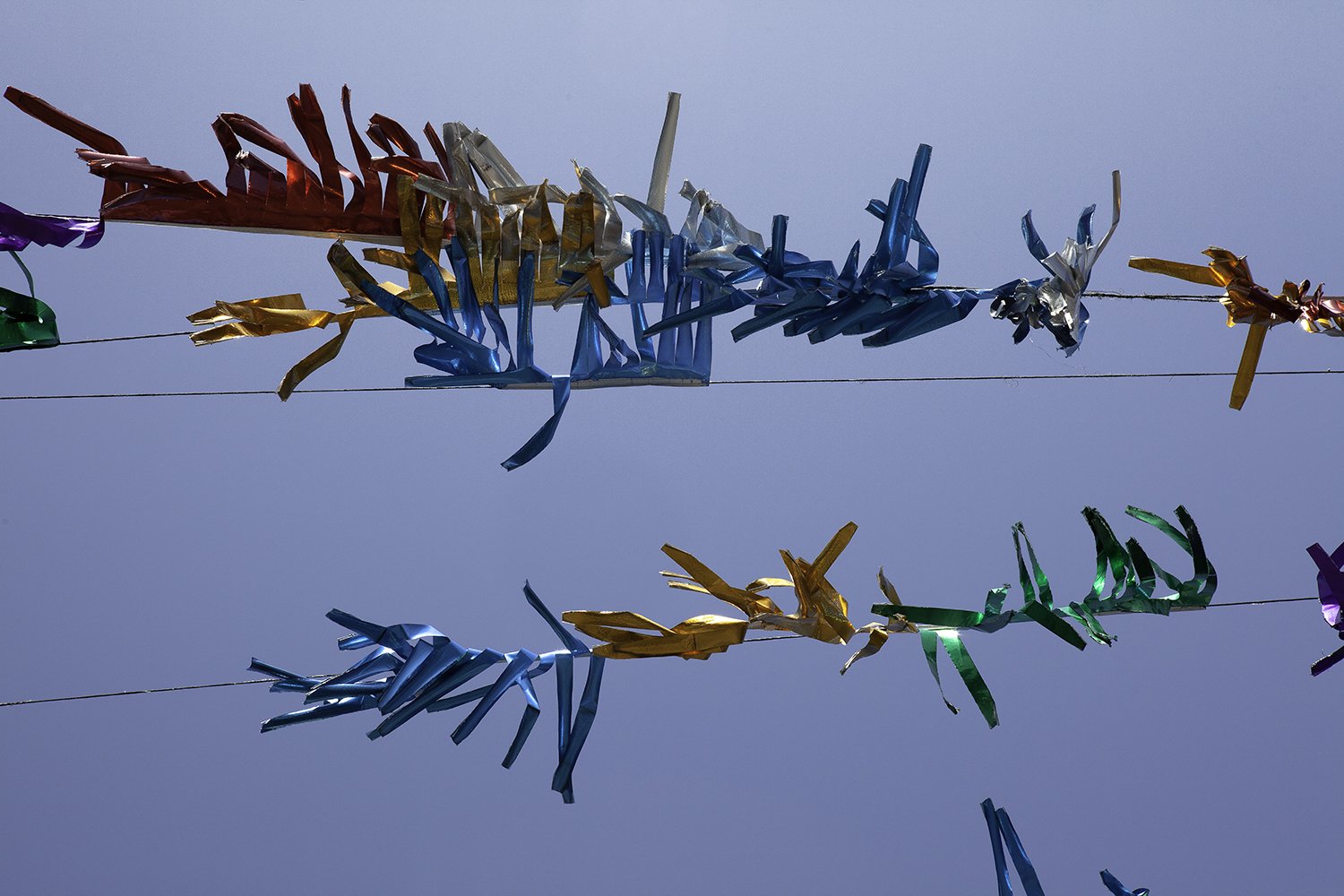
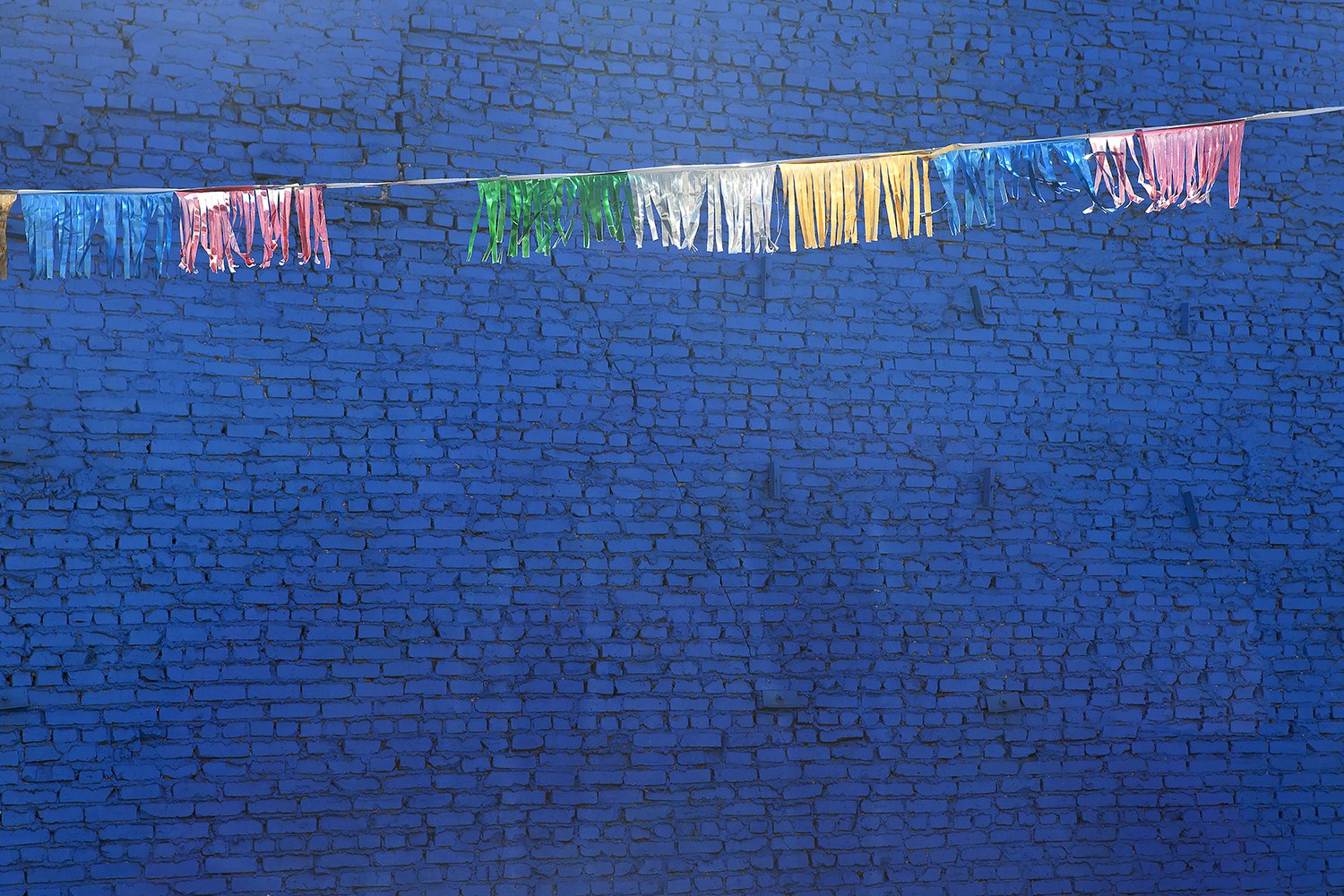
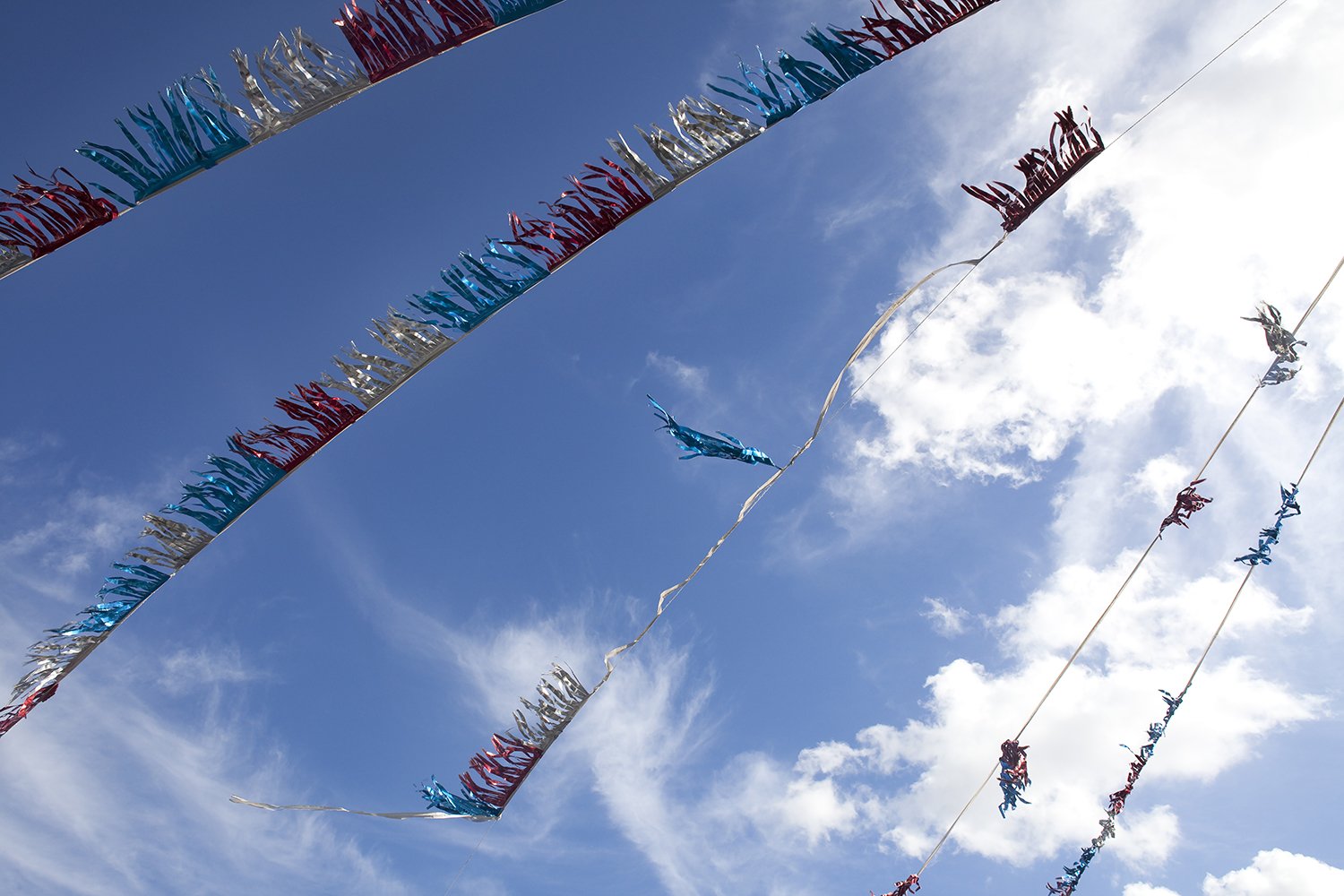
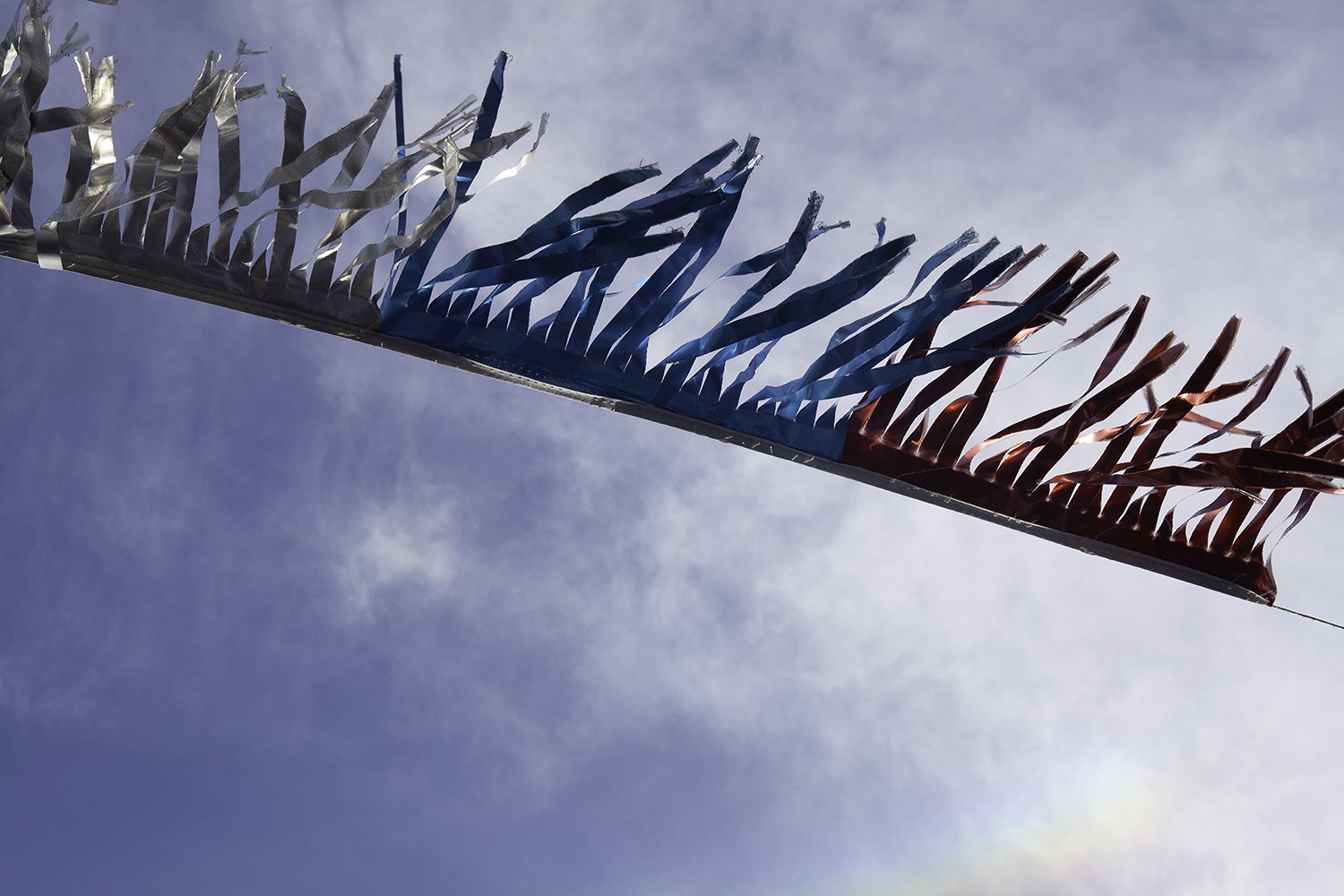
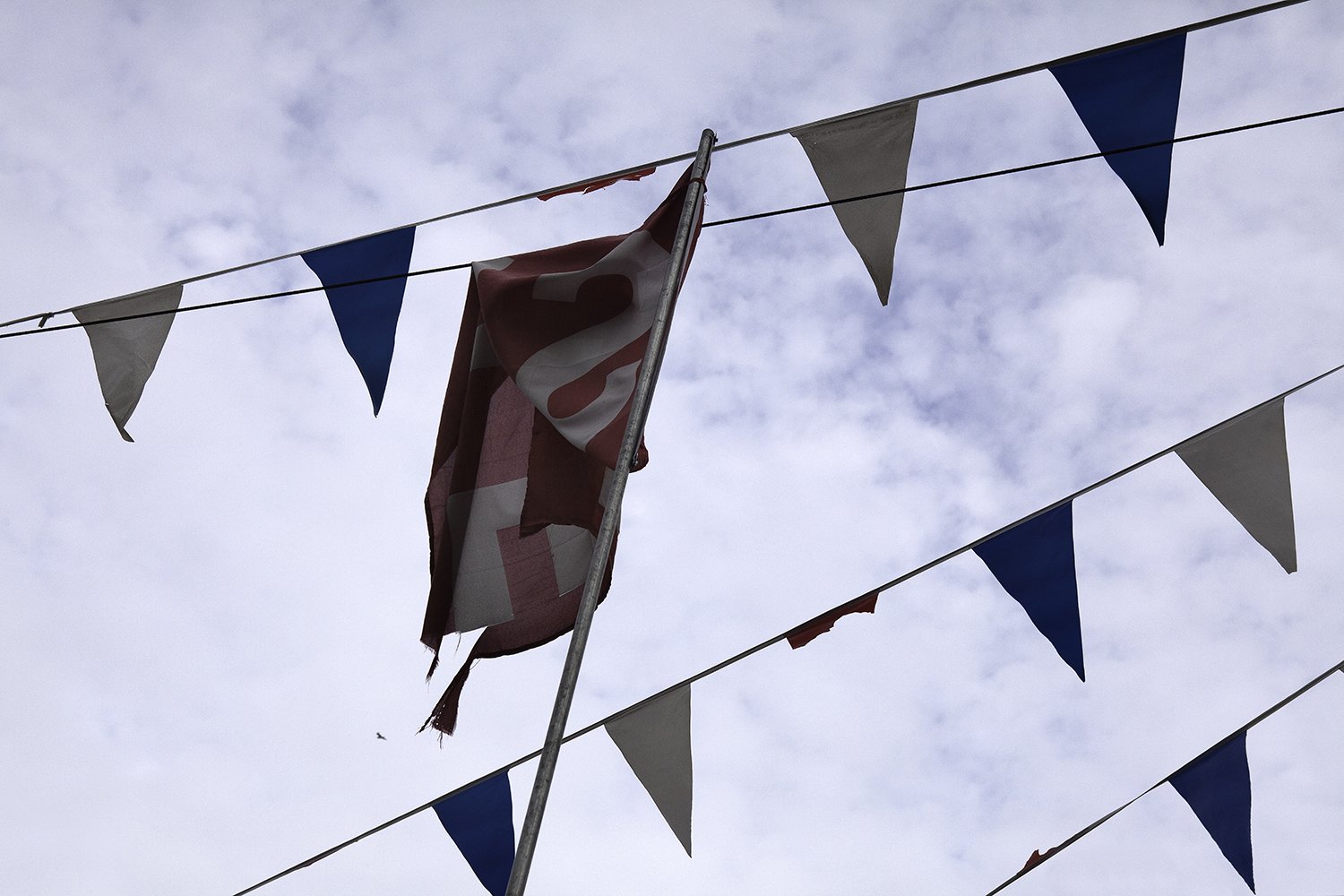
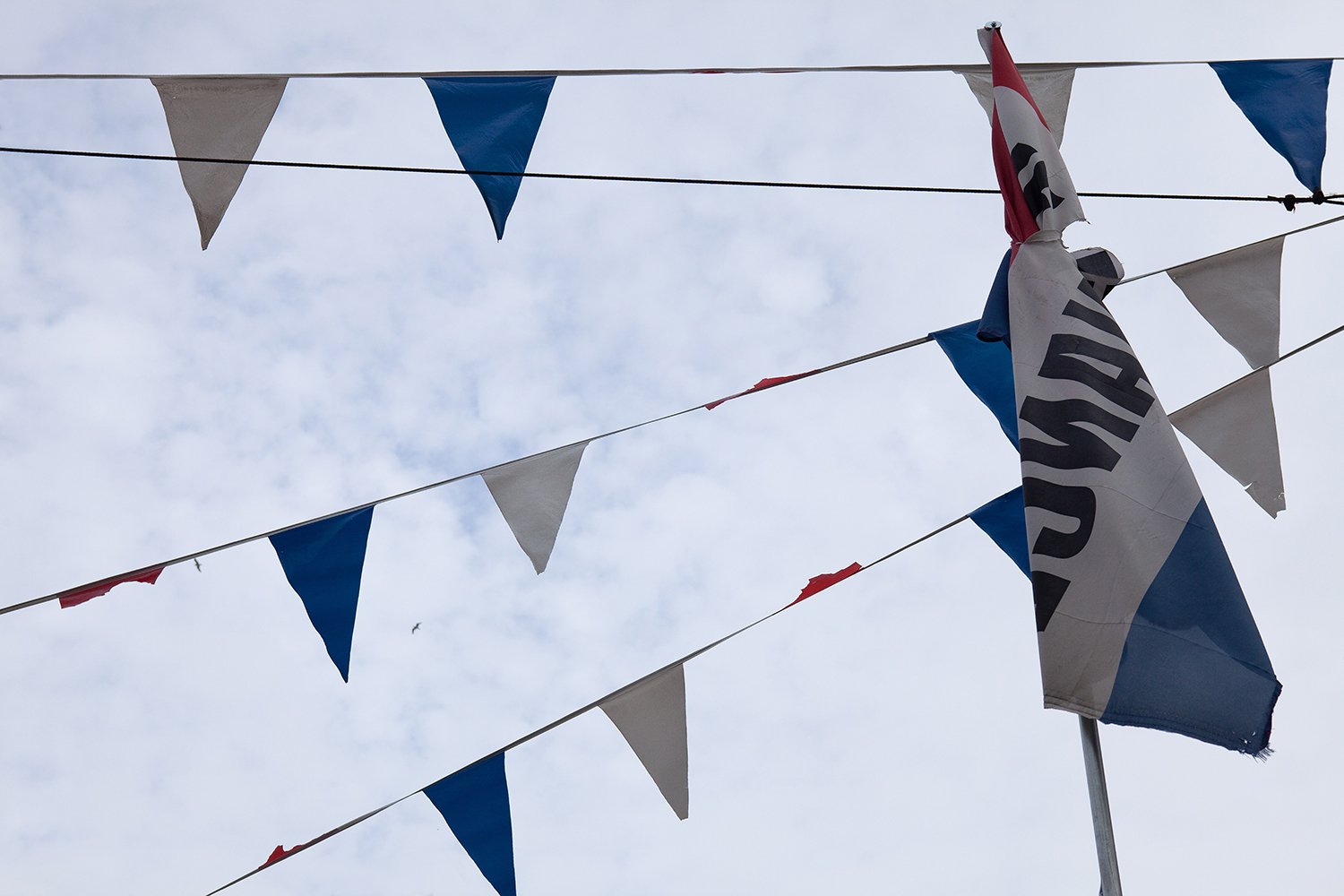
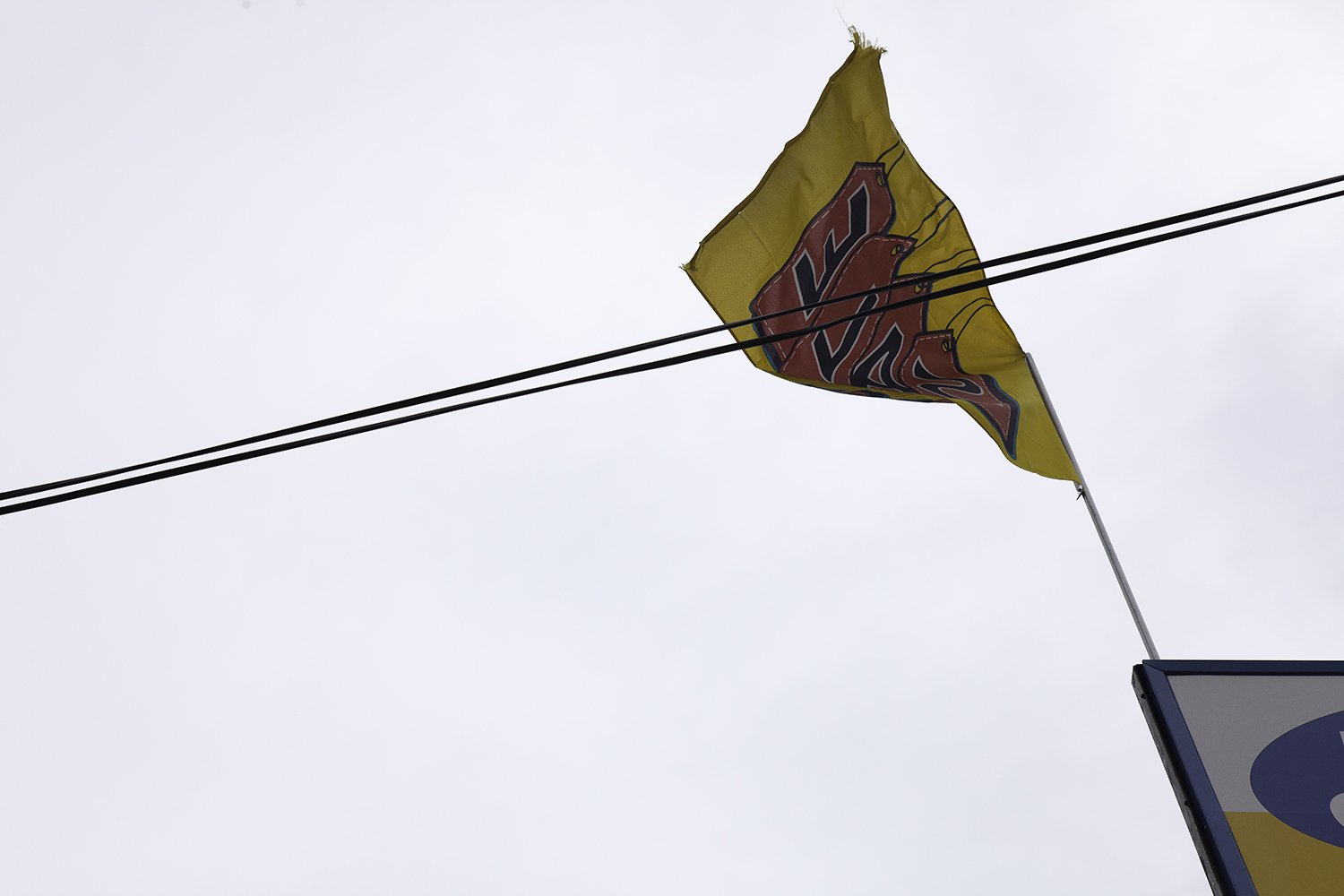
In a smaller gallery within the gallery, a grid of large scale photographs of car dealership flags hover away from the walls and slide around a corner. The colorful, cheap metallic garlands in various states of decay are at once jubilant and tired. Kaufman prints on aluminum, their materiality further emphasizing the phantom presence of cars.
In Big Fish I and II, and Waterfall, Kaufman continues to intervene in archival, functional, and generic imagery that addresses fantasy and performance. Taking photographs of odd photo stand-ins she found at peripheral booths at the NY Boat Show, Kaufman then cuts into these images, juxtaposing them with natural, three-dimensional materials, and rephotographing the assemblages. Big Fish I and II consider the typically masculine ritual of posing with captured or hunted animals and point to the strangeness of these performative vernacular photographs. Waterfall is also a photograph of photographs - scrambled and inverted vistas of vacation destinations found at a restaurant supply store. All of these works play with flatness and depth, and point to the artifice of photography and its role in consumer fantasy.
Installation detail, Big Fish I and II, 2017
Allison Kaufman
Allison Kaufman is a video artist and photographer living in New York City. She received her BFA in Film and Television Production from NYU's Tisch School of the Arts in 2000 and her MFA in Photography, Video, and Related Media from the School of Visual Arts in 2008. Solo exhibitions of her work have taken place at Trestle Projects in Brooklyn, HERE Arts Center in New York City, Real Art Ways in Hartford CT, and Pittsburgh Center for the Arts. Her work has also been exhibited at Julie Saul Gallery, Hendershot Gallery, Moore College of Art and Design, Albright College, and the Aqua Miami, VOLTA, and Affordable Art Fairs, among others. Kaufman is the recipient of the Paula Rhodes Memorial Award and an Alumni Scholarship Award from the School of Visual Arts, has been an artist-in-residence at Yaddo, CATWALK Institute, Trestle Gallery, the Center for Emerging Visual Artists, the Constance Saltonstall Foundation of the Arts, and Penland School of Crafts. Her work has been reviewed in the Huffington Post, the L Magazine, the Pittsburgh-Tribune Review, and Bomb Magazine’s BOMBlog. Kaufman teaches in the Undergraduate Film and Television Department at Tisch School of the Arts, NYU.
Gallery hours for Smooth Confident Perfection:
Thursdays and Fridays: 4:00 - 7:00pm
Saturday and Sunday: 1:00-5:00pm
and by appointment.
Salon Night: April 4th, 7-9pm. Artist Talk and Video Screening. A social night of art, ideas and conversation.
Extended hours for Crown Heights Art Stroll:
Friday, April 5th: 4:00-9:00pm
CLOSING PARTY: Thursday, April 18th 6:00-9:00pm
Contact for press or viewing appointments: sarah@theshirleyprojectspace
917-691-6910

